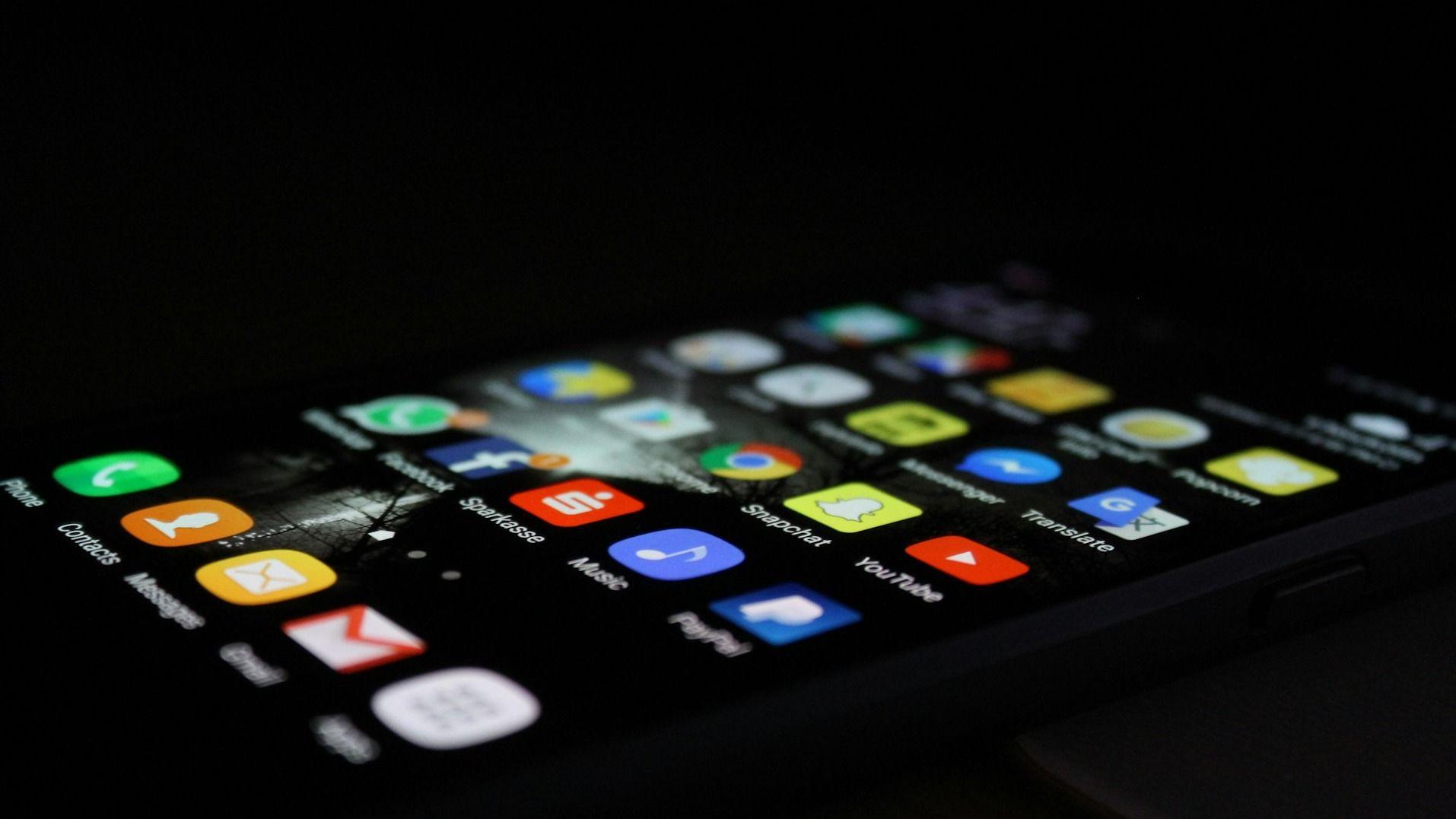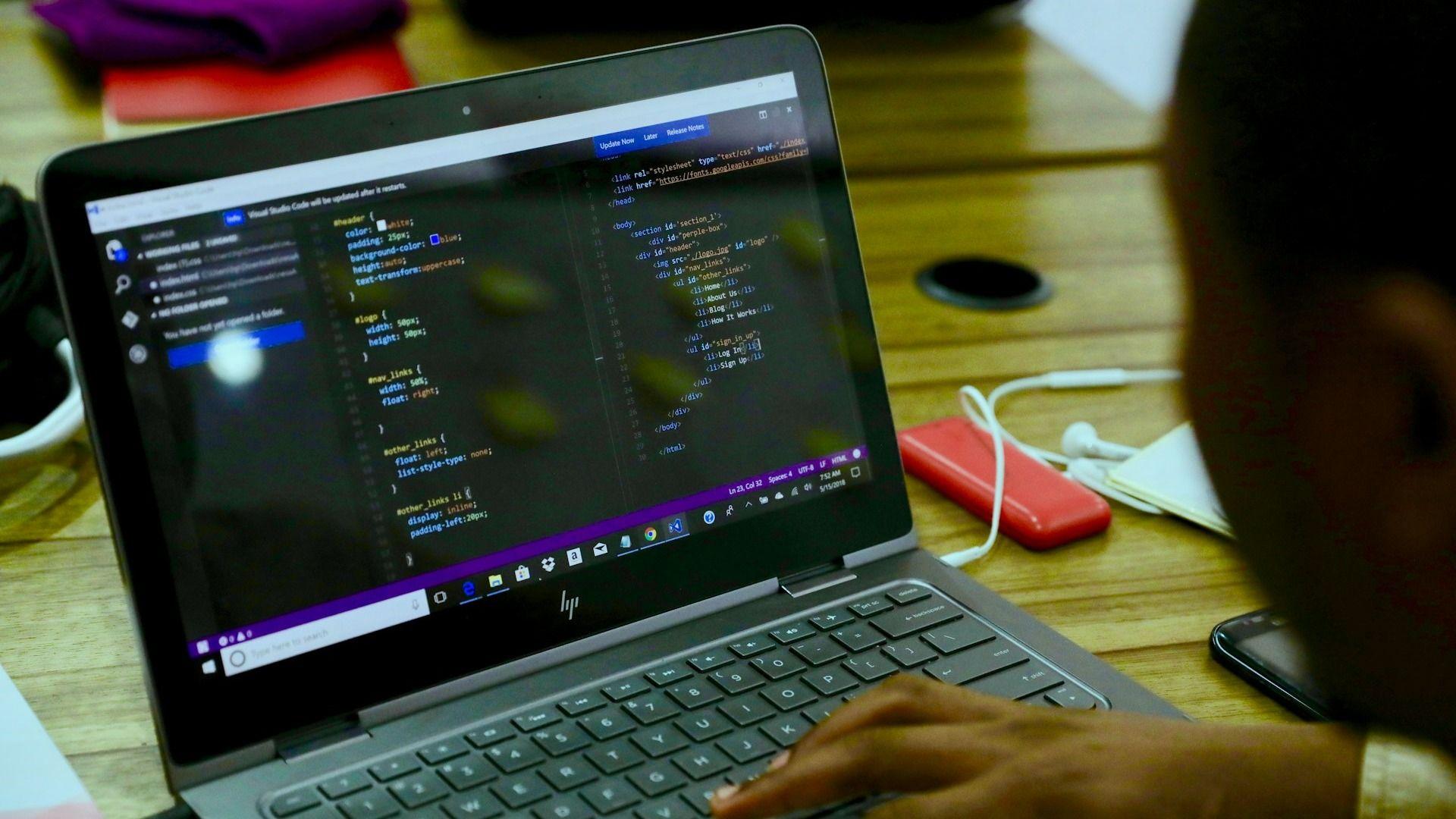Hire remote guide role flutter developers within 4 days
Confronting challenges directly, our guide role flutter developers serve as your dedicated problem-solving allies, providing effective and refined solutions.


Join one of these visionary companies for your remote developer needs
Guide 101
All you need to know to hire a guide role flutter developers
- 01What is Flutter Developer?
- 02What Technology Stacks Do Flutter Developers Use?
- 03Why Do Companies Hire Flutter Developers?
- 04Skills Every Flutter Developer Should Have
- 05How to Hire a Flutter Developer?
- 06Find Only the Best Flutter Developer with Tech for Hire by Codigo!
What is Flutter Developer?
A Flutter Developer is a software developer who specializes in using the Flutter framework, a cross-platform UI toolkit developed by Google, to build mobile applications for various platforms such as Android, iOS, web, and desktop. Flutter Developers typically use the Dart programming language to create interactive and visually appealing user interfaces, leveraging Flutter's rich set of pre-built widgets and libraries.
They are responsible for implementing features, optimizing performance, ensuring compatibility across different devices, and delivering high-quality mobile applications that meet client requirements and user expectations.
What Technology Stacks Do Flutter Developers Use?
Flutter Developers typically use a combination of technologies, tools, and libraries to build robust cross-platform mobile applications. The primary components of the technology stack for Flutter development include:
1. Dart Programming Language
Dart is the programming language used for writing Flutter applications. It is an object-oriented, class-based language developed by Google, specifically designed for building high-performance apps for various platforms.
2. Flutter Framework
Flutter is a UI toolkit developed by Google for building natively compiled applications for mobile, web, and desktop from a single codebase. It provides a rich set of customizable widgets, a reactive framework, and tools for developing beautiful and fluid user interfaces.
3. IDEs (Integrated Development Environments)
Flutter developers often use IDEs such as Visual Studio Code, Android Studio, or IntelliJ IDEA for writing, debugging, and testing Flutter applications. These IDEs offer features like code completion, syntax highlighting, debugging tools, and project management capabilities tailored for Flutter development.
4. Flutter SDK (Software Development Kit)
The Flutter SDK includes libraries, command-line tools, and platform-specific APIs necessary for Flutter app development. It provides tools for managing dependencies, compiling code, running tests, and building deployment packages for various platforms.
5. Platform-Specific APIs
Flutter developers may need to interact with platform-specific APIs to access device features and system functionalities. Flutter provides plugins and packages that enable seamless integration with platform-specific APIs for tasks such as accessing device sensors, handling permissions, and interacting with platform services.
6. Firebase (Optional)
Firebase is a platform developed by Google that offers a suite of tools and services for building mobile and web applications. Flutter developers often integrate Firebase into their applications for features such as authentication, real-time database, cloud storage, push notifications, and analytics.
7. Third-Party Packages and Libraries
Flutter developers leverage a wide range of third-party packages and libraries available on platforms like pub.dev to enhance their development process and add additional functionalities to their applications. These packages cover areas such as state management, networking, database integration, UI design, and more.
Why Do Companies Hire Flutter Developers?
Companies hire Flutter Developers for several reasons, including the ability to develop high-quality cross-platform mobile applications efficiently, faster development cycles, a single codebase for both Android and iOS platforms, and access to a rich set of pre-built widgets and libraries.
Skills Every Flutter Developer Should Have
Every Flutter developer should possess a combination of technical skills, soft skills, and domain knowledge to excel in Flutter development. Here are some essential skills every Flutter developer should have:
1. Proficiency in Dart
Dart is the programming language used for Flutter development. A Flutter developer should have a strong understanding of Dart's syntax, features, and best practices to write clean, efficient, and maintainable code.
2. Flutter Framework
A thorough understanding of the Flutter framework is crucial for building cross-platform mobile applications. Flutter developers should be familiar with Flutter's architecture, widgets, state management techniques, and navigation patterns to develop robust and responsive user interfaces.
3. UI/UX Design
Good design skills are essential for creating visually appealing and user-friendly interfaces. Flutter developers should have a basic understanding of UI/UX design principles, including layout design, typography, color theory, and user interaction patterns, to design intuitive and engaging mobile applications.
4. Widget Customization
Flutter provides a rich set of customizable widgets for building user interfaces. Flutter developers should be skilled in customizing and styling widgets to match the app's design requirements and create consistent and visually cohesive UI designs.
5. State Management
Managing the state of an application is crucial for building reactive and performant Flutter applications. Flutter developers should be familiar with various state management techniques, such as setState, Provider, Bloc, Redux, and Riverpod, to manage the application's state efficiently and maintain a clear separation of concerns.
How to Hire a Flutter Developer?
When hiring a Flutter Developer, it's crucial to evaluate their experience with Flutter development, review their portfolio of past projects, assess their problem-solving skills through technical interviews or coding challenges, and ensure they have the necessary soft skills for effective collaboration within your team.
Find Only the Best Flutter Developer with Tech for Hire by Codigo!
Tech for Hire by Codigo offers a streamlined process to find and hire top-tier Flutter Developers who possess the skills and expertise needed to deliver exceptional mobile applications. Let us help you find the perfect fit for your project!
Let’s Talk Resources
View all articles

23 Jul 2024
Top 10 DevOps Interview Questions with Answers in 2024

23 Jul 2024
25 Android Interview Questions with Answers in 2024

18 Jul 2024
Top 10 Java Interview Questions with Answers
View all articles
Why Tech For Hire by Codigo
Pocket-friendly prices
Starting from S$2,150/mth, we connect you to world-class talent that meets your budget.
Diverse, skilled talent pool
Find your perfect match in our constantly expanding pool of experienced developers.
Remote hiring made easy
Ditch the hiring hassle. Enjoy peace of mind with our rigorous candidate screening.
Scalable tech teams
Upscale with ease. Flexible solution for all team sizes and your project needs.
Smooth communication
Beat language barriers. Bridge the communication with English-speaking developers!
FREQUENTLY ASKED QUESTIONS
A Flutter Developer is a software developer who specializes in using the Flutter framework, a cross-platform UI toolkit developed by Google, to build mobile applications for various platforms such as Android, iOS, web, and desktop. Flutter Developers typically use the Dart programming language to create interactive and visually appealing user interfaces, leveraging Flutter's rich set of pre-built widgets and libraries.
They are responsible for implementing features, optimizing performance, ensuring compatibility across different devices, and delivering high-quality mobile applications that meet client requirements and user expectations.
Flutter Developers typically use a combination of technologies, tools, and libraries to build robust cross-platform mobile applications. The primary components of the technology stack for Flutter development include:
1. Dart Programming Language
Dart is the programming language used for writing Flutter applications. It is an object-oriented, class-based language developed by Google, specifically designed for building high-performance apps for various platforms.
2. Flutter Framework
Flutter is a UI toolkit developed by Google for building natively compiled applications for mobile, web, and desktop from a single codebase. It provides a rich set of customizable widgets, a reactive framework, and tools for developing beautiful and fluid user interfaces.
3. IDEs (Integrated Development Environments)
Flutter developers often use IDEs such as Visual Studio Code, Android Studio, or IntelliJ IDEA for writing, debugging, and testing Flutter applications. These IDEs offer features like code completion, syntax highlighting, debugging tools, and project management capabilities tailored for Flutter development.
4. Flutter SDK (Software Development Kit)
The Flutter SDK includes libraries, command-line tools, and platform-specific APIs necessary for Flutter app development. It provides tools for managing dependencies, compiling code, running tests, and building deployment packages for various platforms.
5. Platform-Specific APIs
Flutter developers may need to interact with platform-specific APIs to access device features and system functionalities. Flutter provides plugins and packages that enable seamless integration with platform-specific APIs for tasks such as accessing device sensors, handling permissions, and interacting with platform services.
6. Firebase (Optional)
Firebase is a platform developed by Google that offers a suite of tools and services for building mobile and web applications. Flutter developers often integrate Firebase into their applications for features such as authentication, real-time database, cloud storage, push notifications, and analytics.
7. Third-Party Packages and Libraries
Flutter developers leverage a wide range of third-party packages and libraries available on platforms like pub.dev to enhance their development process and add additional functionalities to their applications. These packages cover areas such as state management, networking, database integration, UI design, and more.
Companies hire Flutter Developers for several reasons, including the ability to develop high-quality cross-platform mobile applications efficiently, faster development cycles, a single codebase for both Android and iOS platforms, and access to a rich set of pre-built widgets and libraries.
Every Flutter developer should possess a combination of technical skills, soft skills, and domain knowledge to excel in Flutter development. Here are some essential skills every Flutter developer should have:
1. Proficiency in Dart
Dart is the programming language used for Flutter development. A Flutter developer should have a strong understanding of Dart's syntax, features, and best practices to write clean, efficient, and maintainable code.
2. Flutter Framework
A thorough understanding of the Flutter framework is crucial for building cross-platform mobile applications. Flutter developers should be familiar with Flutter's architecture, widgets, state management techniques, and navigation patterns to develop robust and responsive user interfaces.
3. UI/UX Design
Good design skills are essential for creating visually appealing and user-friendly interfaces. Flutter developers should have a basic understanding of UI/UX design principles, including layout design, typography, color theory, and user interaction patterns, to design intuitive and engaging mobile applications.
4. Widget Customization
Flutter provides a rich set of customizable widgets for building user interfaces. Flutter developers should be skilled in customizing and styling widgets to match the app's design requirements and create consistent and visually cohesive UI designs.
5. State Management
Managing the state of an application is crucial for building reactive and performant Flutter applications. Flutter developers should be familiar with various state management techniques, such as setState, Provider, Bloc, Redux, and Riverpod, to manage the application's state efficiently and maintain a clear separation of concerns.
When hiring a Flutter Developer, it's crucial to evaluate their experience with Flutter development, review their portfolio of past projects, assess their problem-solving skills through technical interviews or coding challenges, and ensure they have the necessary soft skills for effective collaboration within your team.
Tech for Hire by Codigo offers a streamlined process to find and hire top-tier Flutter Developers who possess the skills and expertise needed to deliver exceptional mobile applications. Let us help you find the perfect fit for your project!